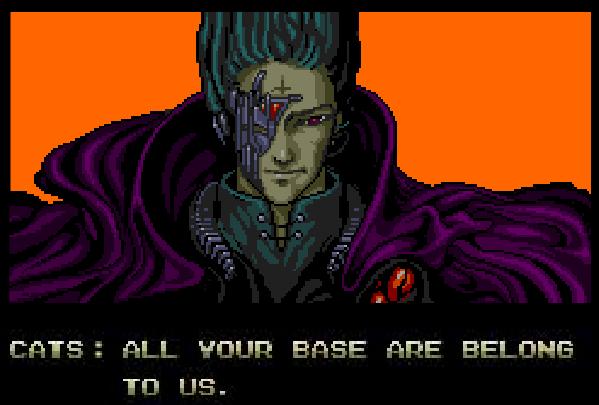Ask some people why Windows Vista failed and they will tell you that most of the problem came from hardware compatibility. I don’t remember ever having problems with Vista back when I used it. Then again I was running it on a brand new computer with the OS in question preinstalled.
And that’s another thing, I think you’re pretty much expected to upgrade your hardware at least every few years. I’d like to think that the people who had problems with Vista kept the same white-box PC they’ve had since 98SE, or even 95. Vista ran great if you had the right hardware. Maybe if Microsoft had optimized their OS even for XP-era machines it would have seen greater adoption.
I also really liked the Aero glass theme, it made younger me feel like I was in the future. Those gadgets at the side of the desktop were pretty cool too. Overall I think it was definitely ahead of its time, and with support for current software and hardware, would have been a solid choice for average computer users today.
Yeah, I’m no MS fanboy at all, but Vista really wasn’t that bad.
Most of the complaints were because of crappy hardware manufacturers putting out systems that were only meeting the minimum specs to run Vista. Those “Walmart special” PCs usually had 512 MB RAM and a low-quality Seagate drive. That, and hardware vendors with crappy driver support.
Once it booted to the desktop, your 512 MB was gone. As soon as you try to launch an application, it would start swapping nonstop to disk and everything just crawled. That put a lot of wear and tear on the disk which eventually failed because it was low quality to start with.
I worked in a repair shop back in Vista’s heyday, and the fix was always the same: Give it at least a GB of memory, replace the failing Seagate drive, reinstall, and it ran like it should have when it was new.
This one. Most systems in the spec didn’t have the RAM to run aero effectively, and ran like shit. If you had 1-2GB of RAM, it worked fine; just you had less of that RAM available to allocate to the same apps that worked great under XP. If you were lucky enough to have a 64-bit processor, Vista was actually pretty nice, compared to the XP 64-bit edition and the driver nightmare that entailed.
All that. I ran the Saturn pre-release and it was a damned nightmare for resource hogging.
The UAC prompts were over the top. To me that was the worst part. They were toned down to a more reasonable level in every version after. But I agree otherwise.
Seems like vista would always ask you 2 or 3 times if you were sure you wanted to open that text file you just created. Vista was ugly too. It was insulting the amount of system resources it used to look that bad. I feel like Vista was also the beginning of Windows trying to integrate into everything you did, rather than just provide a smooth reliable and concise way for you to use your software.
All that being said, Vista looks pretty good compared to 11. At least Vista has a consistent feel to the settings, and the fucking control panel works.
A number of the systems that shipped with Vista preinstalled actually didn’t even come close to being suitable specs to run Vista smoothly. Maybe you got lucky and actually got a good high end system, but they seriously underestimated the memory and processing requirements for Vista when it came out.
I built my PC and have no bad memories from vista
Look man, Vista was a complete piece of shit in every measurable way.
Even if you hand wave away the fact that most important hardware/software didn’t work with it and yes you could get stable hw going…
And give it that the gadgets were pretty cool, akin to my widgets on Android…
The entire thing was a misbegotten disaster of design and implementation. And from a business perspective, they rammed it down everybody’s throat a year before it was even remotely ready. Hardware partners, manufacturers, software developers, not just end users got fucked hard. Most people ended up with steaming lumps of shit that could open a web browser if they were lucky, and maybe use their recipe software.
People forget what Apple was doing with the Mac UI at that time, and Microsoft, decided to sell the sizzle of that, forgetting that they don’t know how to do that. And it was such a internal cluster fuck It was literally never going to be finished unless it got shoved out the door.
It was one 1/2 baked idea layered on top of the next.
And you know it.
Vista’s fragmentation was one of it’s fatal flaws. Microsoft started tripping thinking they were selling fast food not operating systems. Starter, Home Basic, Home Premium, Business, Enterprise, and Ultimate. JESUS WEPT MAN SIX FUCKING EDITIONS.
Those gadgets at the side of the desktop were pretty cool too.
There’s a Rainmeter skin called “Gadgets” which replicates that experience.
I bought a brand new desktop with Vista preinstalled. I had a 3 year old scanner that wouldn’t work with it. That seemed reasonable. My 2 month old, $500 printer wouldn’t work with it either. None of my Games would work with it. Most of the software I had wouldn’t work with it. I had to buy a new printer, scanner, and software which was very expensive. I just tossed my games, which I regret because there are emulators that can run them now.
It also had major issues, and would crash a lot. Most of the new “features” didn’t actually work. I had it less than a year before I switched to Linux.
My son is into retro computing. He tells me that eventual Vista updates made it much more stable and usable, but I didn’t have it long enough to get those updates.
That pretty much ended my relationship with Windows. XP had me thinking that maybe Microsoft wasn’t that bad, but Vista left me with such a bad taste in my mouth that I could never buy another Windows machine.
When Vista launched, I bought a mid-range XP machine a month before. It came with a free upgrade to vista. I chose to hold off on upgrading having experienced Win 98 and Win ME launches.
My office also replaced my work machine 3 months later with a new cheap vista machine.
The work machine was an absolute disaster. Random crashes, slow, and driver incompatibilities for the first 3 months. After the first service pack and I convinced our IT to upgrade the RAM it stabilized and started working well
Once SP2 rolled out, I upgraded my home machine. I had zero issues with it. It worked seamlessly.
Practically, Windows 7 (no Service Pack) was Windows Vista Service Pack 2 but with an another skin.
Windows Vista SP1 was essentially perfect for me. I had a dual core CPU and 4GB of RAM.
Manufacturers were really bad. That’s one of the reasons Windows 7 had a huge emphasis on performance for low specs.
deleted by creator
They tried to change too much at once. The change between 98,ME,98SE, and XP UI were gradual improvements. Then Vista came along and did almost an overhaul of the UI. They refined the UI for 7 which people liked.
Non8t wasnt. It was total shite.
When people say Vista was bad, they’re not talking about the operating system itself. They’re talking about the user experiance and context at the time:
-
Most people forget we were all on the cusp of switching from x86 hardware to AMD64. It was a relatively easy transition, but it was a jump that provided some hard hurdles (drivers) everyone had to jump together. Some things were not automatically compatible. You would likely have to throw away some piece of otherwise perfectly functional hardware to upgrade. People didn’t like that.
-
Also, we were also switching from single core to multiple-core computing. Software had to be written to specifically take advantage of this and often it wasn’t. So even if you had the latest and greatest hardware, the performance gains were often disappointing.
-
The driver models had to change because Win XP was a security nightmare for most people. Browser security had completely been neglected by Microsoft in favor of pushing their ActiveX controls in IE6 and IE7. The entire security model had to change, but the UAC prompts were absolutely out of control. Still, it really was better than getting wrecked by malware.
-
microsoft pushed new file formats with Office 2007 for absolutely hostile reasons and also transitioned to the ribbon interface. These might have been technical improvements, but they were more compatibility hoops people had to jump through that they were frustrated by.
-
Apple was thriving. iPods were in everybody’s pockets and the first iPhone had launched at exactly the same time and was changing how people thought about computers. Vista was “more of the same” in all the wrong ways. Where was the innovation? Gmail launched in 2004, why couldn’t Microsoft make a competing offer?
-
Finally all the cool, futuristic features that had been hinted at with Windows Longhorn were cut from Vista. If you were someone who followed those things, Microsoft over-promised and under-delivered.
Ballmer-led Microsoft had mismanaged their core products for years and it all came to a head with Vista. The consumer frustration was palpable and coincided with several architecture and forced UI changes that really made it hard for people to fall in love with Vista. Individually each problem wouldn’t have been a deal breaker but swallowing all the required pills at once left a sour taste in people’s mouths and had them looking at alternatives. It’s no coincidence that macbook and netbook sales rose sharply over the next few years.
Vista made me switch to Mac back then.
-
deleted by creator
I bought a new small laptop for travel with Vista loaded on it, fairly highly spec’d for the size (4Gb RAM, dual core processor, 64bit etc). Mostly ran OK except for the constant UAC prompts, the weird file system but worst of all the Wifi which ran atrociously and would not connect without resetting the router… which is not doable on hotel or airport Wifi. Took it back and asked for it to be upgraded to XP which had been dead reliable on my home and other Wifi, went back and forth with it for months before I gave in and bought another small laptop with Windows 7 on it which ran flawlessly, Wifi included






